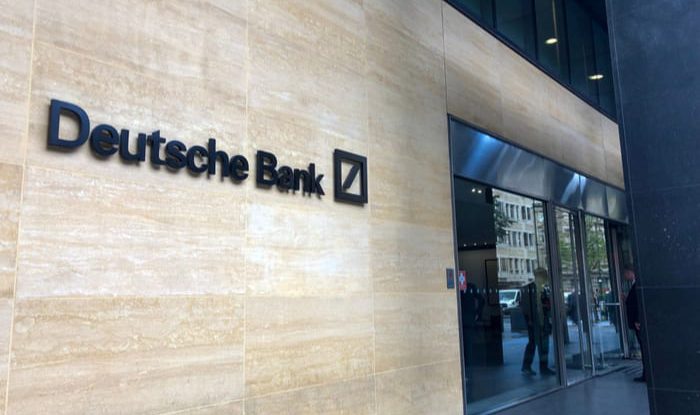Deutsche Bank Compares Initial Stage Evolution Of Internet And Blockchain

An exciting graphic collected by Deutsche Bank examines the early-stage evolution of the Internet and blockchain technology. It reveals that the two have comparatively similar difficult beginnings, but eventually, the former admits more mass adoption than the latter.
Now, it’s hard to visualize relishing a healthy life without regular access to the worldwide web. The Internet was one of the most disruptive and artistic creations of the 20th century.
Blockchain, on the other hand, has been praised as similarly disruptive and intelligent technology in the 21st century by many. Deutsche Bank lately issued a graphic that shows how the two have started, the middle ground, and the projected future adoption. On the left, one can see the number of internet users in millions and on the right – the number of blockchain wallet users ( in millions).
The graphic shows that both had a torpid start, especially in the first few years. It exhibits that after eight years of the occurrence, the Internet was at almost 500 million users, while during the same timeframe, blockchain is at roughly 50 million. This whole 10x difference is projected on the entire graph.
The Internet also needed less than 25 years to touch over four billion people around the world. Deutsche Bank’s prediction for blockchain mass adoption implies that after a quarter of a century, it will be used by around 350 million.
Moreover, though the Internet appears way more authoritative, Changpeng Zhao lately granted a different opinion. The CEO of the largest cryptocurrency exchange by volume, Binance, stated that “blockchain is going to have a bigger impact on our society than the internet.”
Notwithstanding the Internet’s indisputable impact on the world, it had a severe initial period of adoption. The history books unveil that it was built somewhere in the 1960s in a widely different form of what it is today. Nevertheless, it wasn’t until the late 80s and early 90s before it started earning adoption in Europe, Australia, and eventually Asia.
But still, after so many years of existence in some forms, it was costly to use and often unreliable. The largest U.S. internet provider in the 90s charged $9.95/month for 5 hours of unlimited access, and every additional hour cost $2.95.
With all developments such as the introduction of DSL, 3G, 4G, etc., the Internet became a much better variant of itself in the next two decades. A recent report shows that today’s speed is 136 faster than what it was back then. Furthermore, internet access is over 90% more economical.
What does this have to do with blockchain? Well, put, the latter is at its initial stages, where the promise of its future developments and agitations is more vital than its actual usage, at least according to some non-believers. Furthermore, there’re difficulties with costs and scalability that conclusively preclude it from mass adoption.
With that being said, blockchain has come a great way for its relatively short period of living. Users can securely presume that the improvements will continue with more scalability, cost reductions, and faster transactions.
Add a comment
You must be logged in to post a comment.




























































